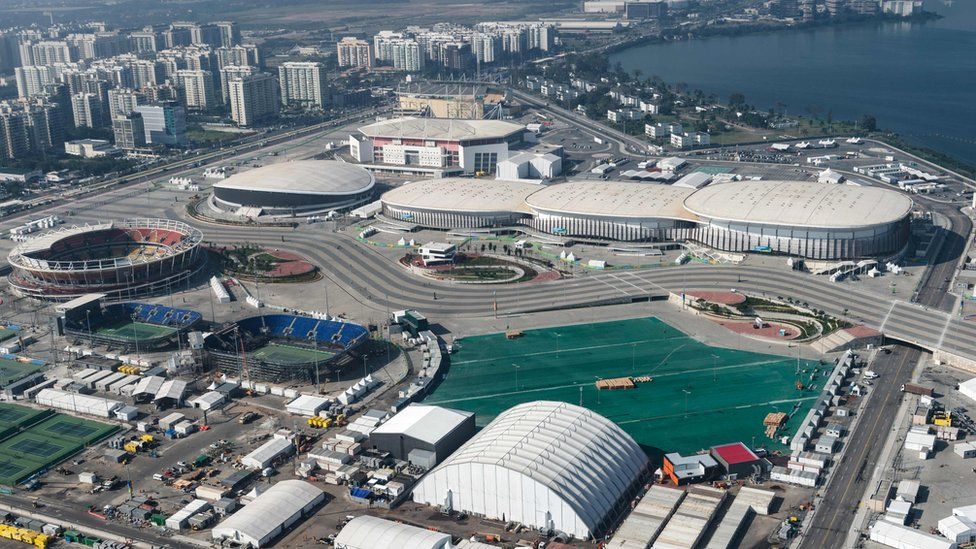Rio Olympic Park: Judge orders closure of site over safety concerns
- Published

A Brazilian judge has ordered the closure of the venues built for the 2016 Olympic Games in Rio de Janeiro over safety concerns.
The city's authorities had not provided safety guarantees for the Olympic Park to hold public events, the judge said.
In 2016, the site hosted basketball, swimming and tennis competitions. It is now used for concerts and other events.
But parts of it have been poorly maintained. The Games were criticised for their cost and alleged corruption.
A number of investigations have been opened into claims of corruption in the construction of venues and infrastructure related to the event, the first to be held in South America. In 2017, the cost of hosting it was estimated at around $15bn (£11bn in current figures).
The Olympic Park in the western Barra da Tijuca neighbourhood is a sprawling complex that includes a velodrome, aquatics and tennis centres and several arenas. It is now a public park, and hosts events including music festivals and e-sports tournaments.
But even before the Games were held, critics argued the sites were too big and expensive to maintain in the long run, warning that some risked becoming "white elephants" like several of the arenas built in Brazil when it hosted the World Cup in 2014.
Judge Eugenio Araujo ruled in favour of a request from the Rio prosecutor's office asking for a ban on all major events at the facilities until authorities had seen certificates demonstrating their safety. He said the place was "progressively battered by the lack of care" and "ready for tragedies".
The federal government is responsible for most of the venues while some are administered by city authorities, the Brazil Olympic Committee and private companies.
From 2017: What has happened to the Rio Olympic venues?
Rio's city hall and the federal government said they would appeal against the decision, local media reported. The city's fire brigade said the facilities had all the necessary documents for events to be held.
- Published20 March 2017
- Published5 July 2019